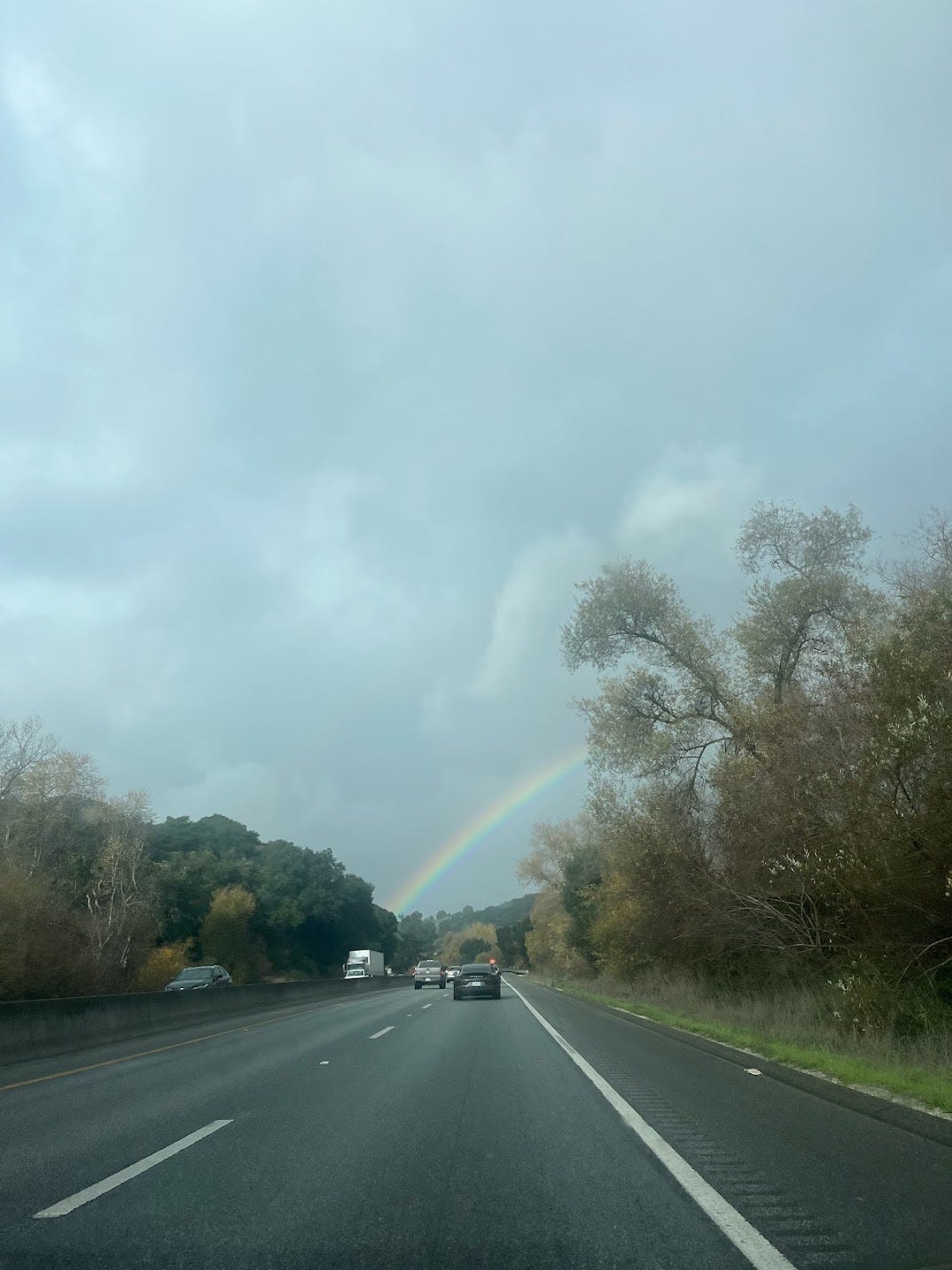Our next contestant… likes a top sheet! He and his wife have differing opinions on what direction the top sheet should be on the bed, which I had no idea was a choice. She thinks the bottom of the top sheet is softer, so it should be flipped upside down. Thus, he now makes the bed with a reversed top sheet. He doesn’t remember having a top sheet in college.
His word of the moment is pterodactyl. He likes flying and birds, so he combined them.
This top-sheet interviewee has been in education for decades and found motivation in the classroom while coming up with new, spontaneous ways of learning. He has always enjoyed making learning feel like a game and letting the excitement and enthusiasm of his students fuel him. He still gets this high from teaching, but not as much as when he spent time in the classroom. He finds himself missing being completely embedded in this world but does not miss the politics that come with working there. He still teaches, but it feels more managerial now– it lacks the spontaneity he once utilized, and is more adult-centered and organized. In a classroom, he typically planned out a week, then changed things as he went depending on the needs and pace of the students. Now, much of his job is prescribed, and he knows exactly what any given day will look like. There are not many surprises or things stretching his creativity, which is another thing he misses. However, toxicity is very prevalent in the public school system, and he mentions being more at peace in this sense now that he is more distant from that atmosphere.
I asked him about nature and adventure next, since anyone who knows him will immediately associate with him with the outdoors. He embodies and becomes the wilderness and finds fulfillment in planning and living out these experiences.
“I have gained so much from having a life full of nature, so I want to share that with as many people on the planet as possible. We all are connected from nature, we all come from nature, but we are all so disconnected from it. There is so much to gain from spending time in nature, and many people don’t understand that or the true benefit of it. I have always wanted to help people understand that importance. For me, mental health-wise, similarly to a lot of other people, nature grounds us. We understand how small we are and how little control we have, and that being as present as nature is is in our best interest. When I look at mountains that haven’t changed for thousands of years, it’s a reminder of the consistency of life. Nature is always present. Nothing in nature is thinking about the past or the future. I think we should be inspired by that.”
He mentions being careful not to sink into having a long list of regrets in his life, as there are so many things he wishes he had started earlier. He does not necessarily regret that he didn’t but wishes he had. Not starting those things earlier unintentionally led to different adventures in life, but he is still chasing many old (and new) dreams. If he would have been born twenty years earlier, he says, he would have been very engaged in the FKT (fastest known time) movement, which documents self-supported speed records for long-distance trails. He is constantly testing his body, seeing how far he can push. He begins to reflect on previous hikes, such as backpacking the Colorado Trail (486 miles) in 19 days. He says that even though it was a massive challenge, he could have done it faster if he wanted to. “What else haven’t I done? What’s the most I can do?” he asks himself. His ambition is evident and striking, and his yearning for more adventure is genuine and lasting. Some of his friends think he hikes trails too quickly or don’t slow down enough to enjoy it, but he says he is challenging himself physically in ways that feel good to him.
“I feel like I always have to have things on my calendar to look forward to and plan new and different things that stretch and challenge me emotionally, physically, and mentally. I still have a lot more room for growth, and it’s a matter of keeping a balanced life. Maybe when I retire, that will be a bigger part of what I do.”
At the time of this interview (many months ago), he was amid “The Presence Process.” Since it is recommended that you don’t share things about the process while in it, he spoke more broadly about his mental health and well-being. He shares he has been in therapy for two years, and is very proud of that. He had pushed back against therapy for a lot of years, as he wasn’t convinced it would be effective for him. Now, he embraces and loves it. He feels he hurries through life sometimes, and being present has always been important to him. The book, The Prescense Process by Michael Brown, acts as a lifelong foundation for becoming more present in everyday experiences. He is (or was) in week two of the ten-week process, which he completed for weeks following our conversation. He has enjoyed the process, and hopes going through it once will enable him to connect dots in his life he has never been able to. From there, he can renew the process in the future, as he wants to keep slowing down rather than getting everything done as quickly as possible.
Right in this moment, a rainbow appeared while we were driving around a mountain. He says it is a sign to be present and appreciate things, like rainbows!
After our rainbow, I ask him about his experience hiking the Appalachian Trail. He says it changed his life, as he was extremely connected to the outdoors and immersed in nature, all by himself, making every decision alone. At the same time, he left behind so many daily stresses of life. It was freeing in that way, but also the most physically demanding thing he had ever done. Before this hike, he had worked 20-hour days in Alaska, which was also very physically demanding, and greatly strengthened his mental fortitude.
If he had been younger, or not married yet, when he hiked the AT, he might have decided to keep walking, in which case he may have never had a big career or a family. Nowadays, people choose to become outdoor enthusiasts, and when he was entering the outdoor world, it was rare to find people who led lives like this. He hiked through fourteen states he had never visited before, and met people he still keeps in contact with (six months after this, we stayed with his closest friend from the trail in Maine. The two spent hours reminiscing on their hike and the bond that resulted from walking side-by-side, a bond that could not have been duplicated anywhere else). He describes how open and vulnerable people tend to be on the trail, as they are willing to share things they might not share with others they have known for years.
We moved on to his childhood. He tells me there weren’t many hopes and dreams in his family growing up– they weren’t even mentioned, much less fostered. Nobody asked him what he wanted to do, even career-wise. He felt lost as a little kid since he had no idea what he wanted to do and wasn’t exposed to much culture, either (except for many musicals– ”a lot of culture there I guess”). It wasn’t until he started going to summer camp on his own, for nine weeks each year starting when he was eleven, that he was able to figure out who he was and who he wanted to be, as well as what he was passionate about. His camp experience connected him to nature and to working with kids, since as he got older, he learned to love being a camp counselor. When he returned home, he was a different person than he was at camp, slipping back into his other life.
He decided to be a business major– his father and uncle told him he should be, and it was the safe thing to do. It had no connection to anything he was interested in, but he didn’t know there were things to study connected to the outdoors or education. At that point, he did not dare to change his major or entirely change direction. He didn’t enjoy his classes much, except for some general ed. He would sit in on his girlfriend’s (now wife) film class and watch the films with her, and he was fascinated by that, but never truly considered changing directions. He went into retail after college, which he didn’t need his degree for. He has used parts of his degree throughout his life, but never really went into business (which he is glad about). He mentions that it is sad in a way that he spent four years studying something he didn’t want to do, but his experiences at camp and in Alaska gave him the courage to finally change directions. He ended up going back to school to get his teaching credential and started all over again, which was the right choice, but scary. Those experiences on his own shaped who he is today, even though it took a while for him to act on things. He needed to go through it all to be where he is now, but some things were harder than they should have been. He is excited that the current generation is more equipped and confident, and will be able to make more educated decisions about their futures.
When I ask him about his relationship of thirty-five years, he speaks on the importance of being able to change with someone, listen, forgive, and apologize (and mean it, from the heart). He speaks on learning most of what he knows now about love from his partner, as he didn’t grow up in a family who embraced unconditional love, and the conditionality of love imprinted on him. He says that having a child helped him understand and give unconditional love, as he never wanted his child to feel conditional love. He and his wife are much different people than when they first met as twenty-year-olds. They have grown parallelly, and though this hasn’t been a straight path, their growth as individuals has complemented one another. He feels lucky to have grown with her and says some of this is hard work, and a little bit of luck.
“This is where I want to be and who I want to be with forever,” he says, smiling.
I ask him when he knew she was the one he wanted to spend the rest of his life with.
“I knew pretty early on, earlier than she did. I think I knew within the first couple of months- I was 20 years old, and I had been in some other relationships, but she was different. Part of what was different was the unconditional aspects of her caring- she’s a very loving person, and it is very unconditional. She has the capacity to forgive, one far greater than most people on this Earth. She can express herself in a vulnerable way. I wanted to encompass these things myself, and I was attracted to her in these ways. I respected and admired her right away, I trusted her quickly. Why would you not want to spend your life with someone like that? I felt like I had lucked out and didn’t want to screw things up and lose her. It was early on that I couldn’t imagine not being with her forever.”
The word he is thinking of is “chademo”, a fast charging system for electric vehicles. We ended our talk while pulling into a charging station before driving the rest of the way home.
Thank you all so much for reading! Your words of encouragement are everything. I can’t wait to share stories from my latest adventure (and first solo travel) to the beautiful Costa Rica! I hope you have a restful and rejuvenating weekend. Talk soon







Loved this one. You are such a lucky girl to have such a great, amazing dad❣️
Okay crying???? So so so good 😭😭😭 incredible as always